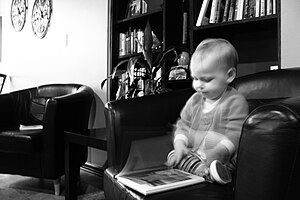 Congratulations! A fantastic story now resides on your hard drive. You put it aside for a while (as all the writing gurus suggest) and then you come back to it for your first round of edits. Days/weeks/months later, you complete that massive task, and wow! An even more fantastic story is ready for introduction to the world.
Congratulations! A fantastic story now resides on your hard drive. You put it aside for a while (as all the writing gurus suggest) and then you come back to it for your first round of edits. Days/weeks/months later, you complete that massive task, and wow! An even more fantastic story is ready for introduction to the world.
You share it with your family and friends—and they all rave about your storytelling talent. You share it with your critique group and beta readers, and they offer some useful constructive criticism that sends you back to your computer with a renewed vision for your WIP. You toil for many more hours, tweaking this, deleting that, rewriting entire scenes and characters, and finally—thankfully—you finish.
Sorry, you aren’t quite ready to publish that masterpiece yet. In the course of all that planning, writing, and revising, you’ve lost your objectivity about your work. But never fear, because I’m here to help you!
Don’t be your own worst enemy by losing your objectivity about your writing. #writetip #editing #selfpub Share on XLet’s examine two reasons you aren’t objective about your own writing and why you need to hire an editor if you are serious about publishing your work:
1. You are too close to your own writing.
You’ve poured your heart and soul into your work. As a serious writer, you are invested in honing your craft. Even after you self-edit, there might be issues you haven’t addressed because you aren’t aware of them. Are there holes in your arguments? Are your introduction and conclusion as strong as they can be? Are your characters three-dimensional? Is your story slow to start, or does it move too quickly? An editor will help you by identifying issues that turn a flat story into one that everyone talks about.
Author Elizabeth Hein addresses this in “Questions”:
In the process of bringing a story to fruition, the author can lose sight of what the reader needs to know when. We are inside the story trying to push it forward. The reader experiences the story one page at a time. They need to understand what is happening at that point.”
Don’t be your own worst enemy by losing your objectivity about your writing—add a professional editor to your team. You wouldn’t dream of interviewing for a job without taking a shower, brushing your teeth, and making sure your socks match; why would you consider creating your legacy as a writing professional without hiring someone to edit your manuscript for errors, omissions, and weak writing?
2. Your mind sees what it wants to see.
Your brain has trouble realizing that “weak” is wrong when you meant “week,” or that you’ve received a “compliment,” not a “complement.” Every writer has a personal pattern of error, such as using the same word too frequently or beginning sentences with dangling modifiers, and those are errors you won’t even notice—but an editor will.
Author Alison Neale puts it this way in “Professional Editing?”:
There are thousands of self-published books out there and you want to stand out from the crowd. Editing may be an expense you don’t feel you can justify – but when it makes the difference between a handful of sales and a best seller, it’s an expense you shouldn’t avoid.”
I won’t sugarcoat this: editing isn’t cheap. Or let me rephrase that: quality editing isn’t cheap. But how much will it cost you to publish a poorly constructed story full of spelling, grammar, and punctuation errors? Ask other authors for references. Check out websites, interview prospective editors on the telephone, and ask for a sample edit.
So a professional writer (that would be YOU) needs a professional freelance editor (that would be ME) to navigate those too-close-for-objectivity minefields in writing. Your expertise is writing; let me show you how my editorial expertise can help you take your writing to the next level. Contact me at cyjohnson5580@gmail.com for a no-obligation quote and sample edit today.
Happy Writing!
—Candace
Did you enjoy this article? Subscribe to my blog and you’ll never miss a post! It’s easy: Just enter your email address on the right side of this page. And please know that I’ll never sell, share, or rent your contact information—that’s a promise!
Image courtesy of Stuart Miles at FreeDigitalPhotos.net
Related articles:
I Don’t Need No Stinkin’ Editor. Or Do I? (changeitupediting.com)
A Little Editing Makes a BIG Difference (changeitupediting.com)









